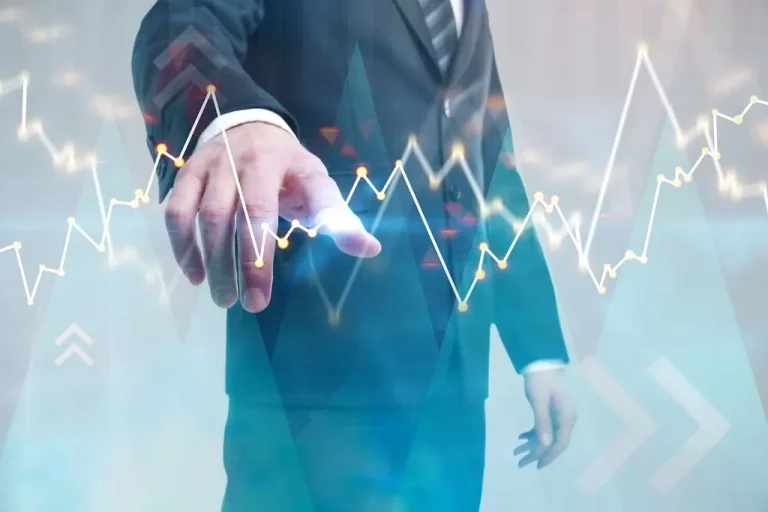Content
This arrangement is synonymous with the B-book model of risk management. In this model, the Dealing Desk broker benefits when the trader loses, as the broker has taken the opposite position. Given the statistics that a high percentage of retail Forex traders end up losing money, this can be a profitable model for the broker. However, it also means the broker assumes the risk of the trade – if the trader wins, the broker has to pay out those profits. In the A-book model, although the broker initially acts as the counterparty different types of forex brokers to the trader’s trade, they do not retain this risk internally. Instead, they externalize the risk by effectively passing the trade onto a liquidity provider (LP).
What is a forex broker and forex trading brokers?
The broker will trade against retail traders if clients’ answers suggest they have a day job, want to fund the account with a small amount, and have no economic background. The stop-loss placement is an issue for traders using market makers. If brokers know where the stop is, that’s info in their favor, and they’ll do anything to trigger it. In other words, traders that open an account with a market maker and place an Proof of personhood order to buy or sell a currency pair will deal with the broker. Trading in forex, stocks, cryptocurrencies, CFDs, indices, and commodities carries the potential for financial loss and may not be suitable for all investors. Moreover, losses in leveraged products may exceed your initial deposit.
Scalp Stock Trading: What It Is? How It Helps Traders
If the answer reflects a small amount (e.g., $100, $1000), it’s not enough for ECN trading. Some of the questions during the account-opening procedure offer relevant info to brokers. Based on the answers provided, the broker https://www.xcritical.com/ decides which category the trader should go in.
Choosing the right type forex broker model for your style

DD brokers, also known as Market Makers, create a market for their clients by taking the opposite side of their trades. Furthermore, it is good to realise from the outset that there are no longer pure A-book Forex brokers and pure B-book Forex brokers; in fact, all Fx brokers nowadays offer a hybrid model. These aspects directly impact the trading experience, as they dictate the tools, features, and conditions available to traders. That is what we will do for you here, explaining everything in layman’s terms. Once you have made your way through this guide, you should have a clear understanding on the different types of forex broker so that you can make an informed decision as to which is best for you. Therefore, picking the right broker depends on your trading style and strategy as well as on the conditions offered by the brokerage house.

Micro Account Forex Broker (Cent, Micro, Mini)
While clients don’t get to see the real interbank market rates, they are still offered rates that are very close to, if not, similar to interbank rates as competition between brokers is very stiff. When they match these orders, they make a profit through the forex spreads on that trade. If there are no clients to match offers, this is when the market makers counter your offer.
Ultimately, the retail trader pays the commissions, but brokers have their cuts too. Most rookie retail traders believe they can turn a thousand dollars into a million. It’s not impossible, but it takes time, and everyone wants to make a million bucks fast. Therefore, the likelihood of these traders taking more risks increases, and the next thing you know, they’ve lost the account. The problem with market makers is that the broker calls all the shots. Because these brokers create the market, that means they control the market conditions, too.
- We have a team of experienced professionals dedicated to providing accurate and up-to-date information.
- A good Forex broker provides not only the platform for your trades but also crucial support, competitive pricing, and a solid foundation for your trading strategies.
- Two examples of B2C Forex brokers include retail Forex brokers (such as eToro, Pepperstone, IC Markets and others) and Prop firms.
- Requotes can become a problem for your profitability, especially in volatile markets, and most brokers that come without requotes utilize “market execution” technology.
- They allow forex traders retail or corporate to get access to the forex market.
- Some traders are stuck with the MT4 because the indicators, EAs, and tools that were designed for the MT4 cannot work on the MT5.
- The DMA uses variable spreads, which means that the forex spreads are narrow or tight.
Direct market access is a forex broker that uses an automated system to execute orders by matching them to market makers or liquidity providers. It is a non-dealing desk broker so that all the client orders are done safely on the system. The STP brokers have the characteristics of the ECN brokers and the market makers. They are like the market maker brokers that use an automated trading system. STP brokers direct trade orders to liquidity providers with real-time interbank market rates, offering the best price in the forex market due to variable spreads. Large firms often operate internal trading desks referred to as market makers or dealing desk brokers.
The Forex market is vast and decentralized, which means that regulation varies by country. A regulated broker is one that adheres to the financial authorities’ rules and standards set by the governing bodies of their region. High-frequency trading (HFT) requires a certain minimum capital threshold (ideally) and specific strategies. In order for HFT to be consistently successful, your chosen broker needs to match up in certain key areas.
It is essential to understand how leverage works and use it responsibly. Different brokers offer varying levels of leverage, and the amount you can access depends on the broker’s policies and the regulatory requirements of the country in which they operate. Forex brokers can be categorized based on the range and nature of their clients’ services. The depth and breadth of these services can significantly influence a trader’s experience, from the guidance they receive to the costs they incur.
Offshore forex brokers are known for their ease of access, diversity of trading facilitation, and often high leverage. By definition, an offshore forex broker is a brokerage that operates outside the regulatory jurisdiction of your home country (often domiciled in regions with more lenient financial regulations). If you use an A-book broker, it means that your trade orders are routed directly to interbank liquidity providers. An A-book broker will state all of their costs upfront, levying commissions and fees for providing the service of enacting your orders. DD brokers provide wider bid-ask spreads but do not charge commissions, whereas NDD brokers have tighter spreads but charge a fee per trade. Finally, the decision comes down to your specific trading requirements.
Most trading strategies are supported and startup capital is usually low. Many well-established forex brokers develop their own proprietary trading platforms. The platforms can be simple or complex depending on the needs of the broker. Some proprietary platforms come with powerful features, customized services, market analysis, and even trade automation. The forex (foreign exchange) market is the largest and most liquid financial market in the world, with an average daily trading volume surpassing $6 trillion.
Through InvestinGoal, Ucchino helps users navigate the world of online investing and trading by providing trading guides, best brokers rankings, broker reviews, and broker comparisons. Filippo Ucchino is the founder and CEO of the brand InvestinGoal and the owning company 2FC Financial Srl. Filippo Ucchino started his trading career in Forex trading in 2005. He became an expert in financial technology and began offering advice in online trading, investing, and Fintech to friends and family. Understanding how to choose a Forex broker is a task that can become complicated if one does not have the right basics.
Trends related to the industry reveal that the retail share of currency trading is on the rise, too. At present, the portion of Forex trading volume belonging to retail traders doesn’t exceed 5 or 6% of the total global volume. The most popular platform classifications are MT4 brokers, MT5 brokers, cTrader brokers, and brokers who offer proprietary platforms. STP brokers route orders to LPs, ECN brokers connect traders to the market while DMA brokers aggregate orders and move them to their partner LPs. With hundreds of online brokers on the internet, choosing the right forex broker has become a difficult task. There is no perfect formula for choosing a broker for all; it depends on several issues such as your location, budget, trading strategy, trading knowledge and experience, etc.
